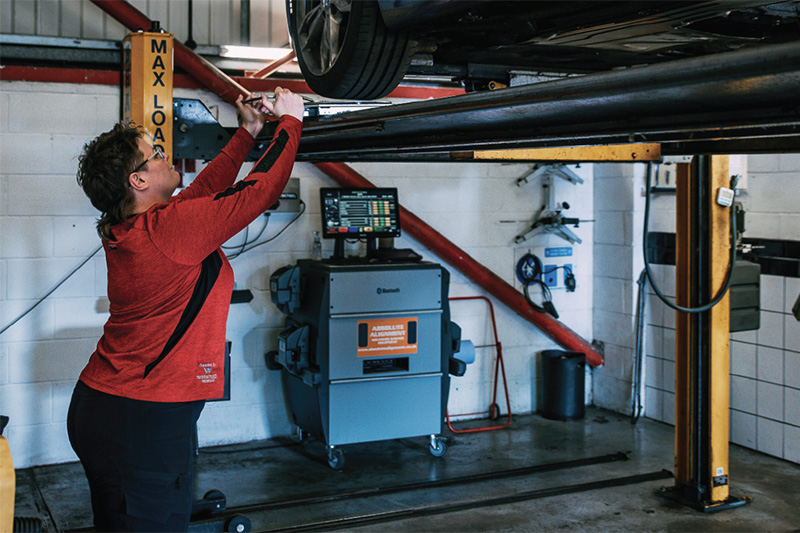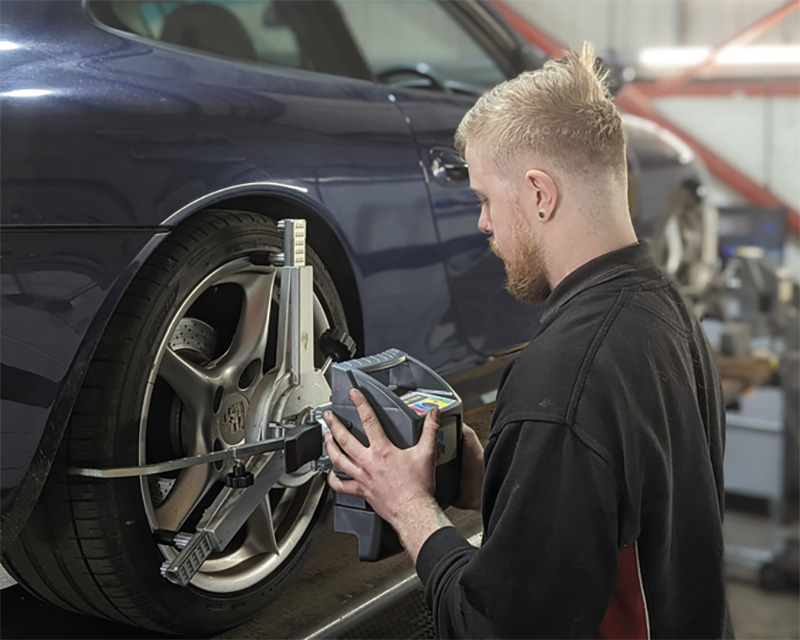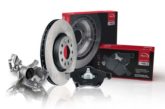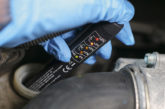
As the management of Avia Autos is passed to a fresh pair hands, Hayley Pells reflects whether the future of the family garage lies in greater specialisation.
Avia Autos has long been a chassis tuning specialist, at certain points making large strides with new technology, but mostly relying heavily on training, experience, and reputation.
Avia started life as the Bach Garage, a small repair shop behind a fuel station, performing repairs and maintenance for the cars that were local to the premises. It made a living and supported an interest in racing side car outfits. As small businesses will, paths changed and merged over time, reacting to opportunity or local need, and the business began manufacturing single seater racing cars not far from the first premises. All vehicles steer, stop, and stick to the road and getting those systems working in perfect union enabled drivers to stop later and therefore go faster. The start of specialisation began, and this fascination of chassis tuning continued for the next 40 years and remains very much part of Avia’s core business today attracting motorists from far afield as well as those local.
Avia (as it stands) started in 2000, once again relying on the chassis tuning skills from manufacturing and had a small repair and set up shop not far from where the current workshop stands. The 1980s “Exacto-Weigh” imported by my father from the states at great expense is still in regular use, gracing three workshops with its reassuring reliable green dot matrix screen, for although the kit added great convenience to the technician, the principles have not changed. This 80s tech comfortably works with the modern computerised laser alignment equipment that replaced our axle stands and ball of string.
Examining the landscape in which a business operates can present an opportunity to fill a gap left by competitors, but it is quite a commitment for the owner-operator to perform tasks that don’t interest them and for Avia, chassis tuning was what we were passionate about, so chassis tuning is what we did. Understanding what is desired from the business and how to find the market demand will give the best environment for a specialism to thrive.

Benefits of specialisation
Cost – focusing resources like time and money into key areas of application can then lead to a strategy to acquire the correct kit, training, and any accreditations. That focus allows the return on that investment to manifest much faster than if those resources are spread thinly.
Reputation – the higher perception of authority on a subject cannot be underestimated. This can allow a higher charge for a specialist service, whilst accepting fewer clients – allowing greater satisfaction and attention to detail – whilst reducing risk.
SEO – search engine optimisation is the term used to describe how easily your business is found on the internet. Although preferable to have a website, even businesses without one and no input from that organisation will have a digital presence. Specialisms tend to be searched for with specific terms and those can reap the most reward with a digital presence that can take advantage of this.
Competition – becoming a bigger fish in a smaller pond means it reduces the number of companies that can compete. This also helps justify expensive equipment investment and time for training.
Development – a specialism can lead to a smaller learning curve and enables an organisation to stay up-to-date with new trends, best practices, and developments. Lightening this load makes it easier to focus resources feeding the first three points!
For Avia, a love of racing developed our specialism, which more by accident than design led to greater opportunity for modern vehicles which are sensitive to alignment issues. Understanding the basic principles of our specialism meant that technology advances had a firm foundation to build our development upon. As we see greater electrification of the UK car parc, I can see how alignment, and its natural bedfellow, ADAS, are going to present more opportunities for the workshop – it has been a very long time since we opened an engine!
Ideas for specialisms
Here are some ideas to look at strengths you may already have in your own workshop, there are many more!
AC – air conditioning expectation is continuing to grow, no longer just for luxury models, even basic models can boast an AC system as standard fitment. High voltage vehicles are highly maintenance dependent making refrigerant as important as engine oil is for their ICE cousins.
Extraction – injectors, glow plugs, even spark plugs – difficult extractions provide a great opportunity for a specialist, especially a mobile one. Longer service intervals and missed maintenance make this potentially a great specialism.
Updates – software updates are highly likely to become a reality, it is worth understanding how this fits with block exemption and what the legal standpoint is for this fast-paced arena.
Portering – a development of recovery, taking vehicles to other specialists may become a role. Likely to emerge in the gig economy, this could develop from the work aggregators that already keyed into time poor motorists and wish to get vehicles to brick and mortar workshops that are suffering a skills shortage. “Just Fixes” instead of “Just Eats” for example.
Customisation – mainstream media seems to be back in the 90s with its love of car modification content, perhaps this could spawn modification workshops?
Classics – a firm favourite, tried and tested, the classic car workshop may be on the rise, with Statista publishing projected growth of the global classic car market with some exceptional figures. Vintage cars are particularly popular in Europe and North America where the vehicles are considered as collectibles and the insurance premiums are typically lower than modern cars, meaning we may see them as a viable form of affordable private transport whilst the shift to more expensive electrification happens.









